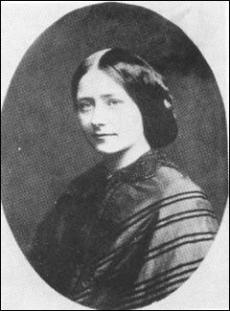No, this post isn’t about the HG Wells’ creation or his imaginary feminine equivalent, but the Invisible Woman conjured in the pages of Claire Tomlain’s The Invisible Woman – The story of Nelly Ternan and Charles Dickens.
After reading Tomalin’s stupendous Dicken’s biography ( balanced, never fawning, poetic, brilliant researched) I was completely curious as to her first treatment of the Dickens’ material, as first published in 1990, The Invisible Woman. In it, Tomalin explores more of Nelly’s side of the story – her family raised in the theatre, the nineteenth century opposition to women in the theatre ( based on the fact that if one could act a lady, it would be difficult for a gentleman to tell the difference), her meeting of Dickens and his clandestine and secretive courting of a woman the same age as his own daughter.
Where there are no concrete sources Tomalin surmises, but she always reminds the reader that these are her own conclusions. However, they are so well researched and her point of view, always compassionate and balanced, that one can’t help to concur.
Just as Dickens was a master deceiver employing his theatrical wiles and tricks, changing his identity to nurture and conceal his secret love, so did Nelly after her time with Dickens ended by constructing her own new identity – making herself 8 years younger, erasing her theatrical past and relegating Dickens to the role only of a family friend.
The most strikingly frustrating thing is the lack of Nelly’s own voice – all of her letters were destroyed, by her son and others, but Tomalin does her best to draw from all remaining sources a portrait of a strong, intelligent woman, who was hemmed in by the morality of her age. Though sometimes I could never really grasp if Nelly held true affection for Dickens or if she was somehow shepherded into the relationship in an aide to help her family.
In 1867 Dickens lost one of his diaries, much to his displeasure, and has been decoded and used by Tomalin to great effect, devoting a whole chapter to it, as it covers the volatile question as to whether Dickens and Nelly had a child together. In the diary it is clearly marked as: ‘N ill later part of the month’, ‘Arrival’ and ‘Loss’, which to me and to Tomalin enough to conclude there was a child. Later in her life, when married to a school teacher, Nelly actively took to fundraising and championing a creche for working women, and I can’t help but wonder if this was because she too, as a working class girl lost her own child? There is also the possibility that they may have had another child together, but there is no conclusive evidence, but one does wondering, considering Dickens fathered 10 legitimate children.
Nelly in reconstructing her life after Dickens married and had two adored children of her own, concealed her theatrical past and her association with Dickens. However, after her own death, when her son Geoffrey found out about her association, and after confronting Henry Dickens, his own sense of self was fatally flawed – he could not reconcile his adored mother and the woman who had been an actress and Dickens’ lover, tragically burning all her letters and banned her name within his house. I can’t help but wish this tragedy had been avoided, for if ever a child was loved and cared for, it was Geoffrey. But how could Nelly reveal her past, when even her husband never knew?
There are many questions raised by this book – I can’t help thinking about the possibility of a future relation being discovered, possibly the almost child of Dickens and Nelly. Nor can I help but speculate over the stolen letters of Dickens to Nelly, that were stolen from her possession after his death. Will they one day show up? I hope so, for it would be wonderful to hear, even if through Dickens’ eyes, Nelly’s own voice.

